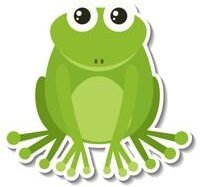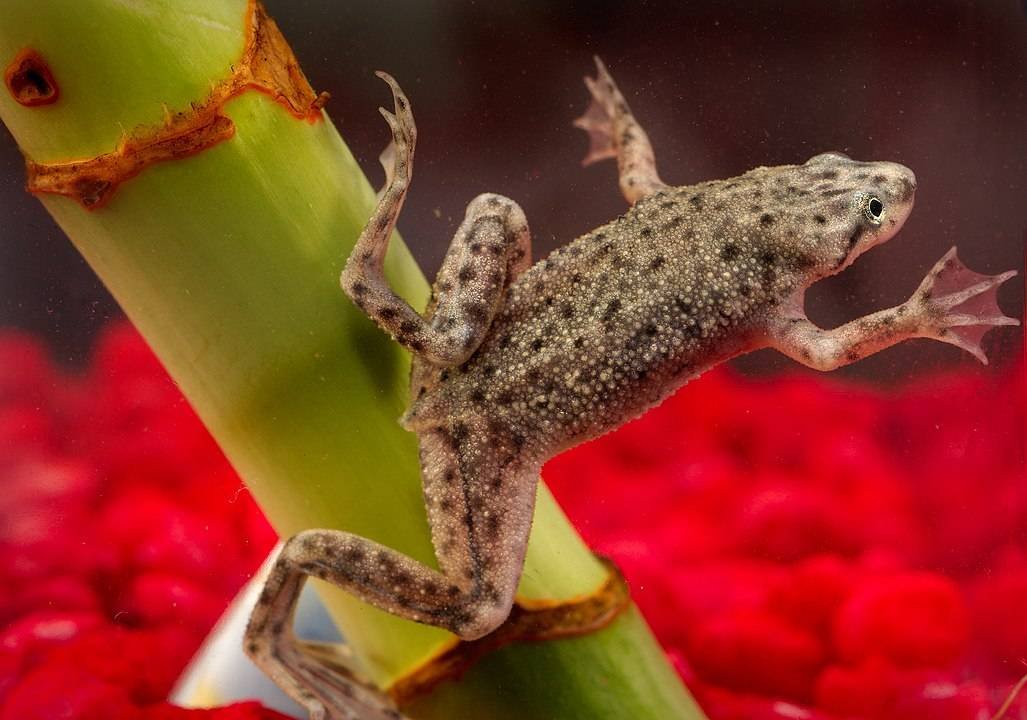The African Dwarf Frog, scientifically known as Hymenochirus spp., is a fascinating and popular pet amphibian that captivates aquarium enthusiasts worldwide. Known for their engaging behavior and suitability for home aquariums, these small, fully aquatic frogs bring a touch of the wild to any freshwater setting. Let’s dive into the world of the African Dwarf Frog and explore its characteristics, care needs, and the joy they bring to aquatic setups.
Characteristics and Appearance
African Dwarf Frogs are petite, aquatic frogs native to the rivers and ponds of Central Africa, particularly parts of the Congo Basin. These frogs are known for their small size, typically growing to about 1.5 inches in length. They have smooth, brownish to olive skin, which is often mottled, providing effective camouflage against the substrate of their natural habitat.
A notable feature of the African Dwarf Frog is its fully webbed feet, which aid in swimming and foraging. Unlike many terrestrial frogs, these frogs spend their entire lives underwater but need to surface occasionally to breathe air, given their lungs.
Habitat and Tank Setup
When keeping African Dwarf Frogs as pets, it is important to replicate their natural environment as closely as possible. A suitable aquarium for these frogs should be at least 10 gallons, providing ample space for swimming and exploration. The tank should be equipped with a secure lid to prevent escape, as these curious creatures might venture out if given the opportunity.
A well-maintained tank for African Dwarf Frogs should include smooth gravel or sand substrate, as well as plenty of hiding spots created by plants or decorations. The water temperature should be kept between 72-78°F, with a gentle water flow to simulate their natural riverine habitats. Regular water changes and filtration are essential to keep the environment clean and healthy for these delicate amphibians.
Diet and Feeding
African Dwarf Frogs are carnivorous and thrive on a varied diet. In captivity, they can be fed aquatic frog pellets, frozen or live bloodworms, and brine shrimp. It is important to ensure that food is readily available at the bottom of the tank, as these frogs are bottom-dwellers and may not compete well with fast-moving fish during feeding times. Feeding should generally occur every other day to keep them healthy and active.
Behavior and Compatibility
Known for their sociable and peaceful nature, African Dwarf Frogs are best kept in groups of at least two or more. They exhibit a variety of charming behaviors, such as floating near the water’s surface, “burbling” or making quiet calls, and playfully interacting with tank mates.
While they are compatible with many community fish species, care should be taken to avoid housing them with aggressive or larger fish that might view the frogs as a meal. Additionally, these frogs can cohabitate successfully with smaller, non-aggressive fish like tetras and guppies.
Conservation and Observations
Though not currently endangered, African Dwarf Frogs serve as excellent ambassadors for freshwater biodiversity, reminding aquarium hobbyists of the importance of preserving aquatic ecosystems. Observing their behavior can provide valuable insights into the dynamics of wild frog populations and the need for habitat conservation.
Conclusion
The African Dwarf Frog remains a well-loved choice for aquarium enthusiasts due to its easy care requirements, endearing behaviors, and ability to thrive in a community tank setting. By understanding their specific needs and creating a supportive environment, enthusiasts can enjoy the presence of these delightful frogs and contribute to aquatic ecosystem awareness.
By James Gathany – This media comes from the Centers for Disease Control and Prevention’s Public Health Image Library (PHIL), with identification number #11835.Note: Not all PHIL images are public domain; be sure to check copyright status and credit authors and content providers.العربية | Deutsch | English | македонски | slovenščina | +/−, Public Domain, https://commons.wikimedia.org/w/index.php?curid=19895338
